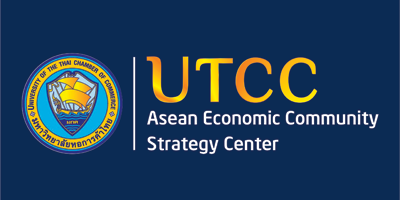Thailand: Telemedicine: Opportunities and challenges
In our previous article on Sept 18 we discussed telemedicine, what it means and how it has the potential to help solve many of the challenges confronting healthcare today. In Thailand, telemedicine in public hospitals has the potential to provide improved access to healthcare services for people living in remote areas where there are insufficient doctors and facilities. It also allows the country’s private hospitals to remain competitive with international counterparts in medical tourism markets. However, there are unresolved legal and ethical issues concerning telemedicine and in this article we will discuss a few of them.
Duty of care: Other jurisdictions (for example, Singapore) provide that where there is a doctor-patient relationship, healthcare professionals providing services by telemedicine should be responsible for meeting all applicable legal and ethical requirements and exercising due diligence in delivering such services.
It appears this may be a bridge too far for the Medical Council of Thailand. Its current approach appears to be that a duty of care should arise only if and when there has been an actual physical meeting between doctor and patient. Is this attitude too inflexible? While the traditional face-to face meeting (where practical) may be ideal, this approach does not acknowledge the reality that telemedicine can be an effective tool to overcome obstacles, particularly of accessibility. We suggest a more flexible and up-to-date approach, as reflected in the Singapore Telemedicine Guidelines, as follows:
(a) To deliver quality care by telemedicine, the issues to be addressed include appropriate protocols, informed patient consent, privacy and confidentiality, adequate records and documentation, and appropriate facilities.
(b) Any service contemplated must be suitable and appropriate for delivery by telemedicine. Delivery must also be reasonable, having due regard to clinical objectives, the clinical context, and the availability and compatibility of technology to satisfy these objectives.
(c) Telemedicine arises in diverse contexts. There is no “one size fits all” approach. For example, the relevant standard of care may vary depending on whether the interaction involves a patient at one end and a healthcare professional at the other, or is only between professionals at both ends.
(d) The provider must be satisfied that the patient is suitable for a telemedicine interaction and is sufficiently literate to give fully informed consent.
(e) Where a face-to-face consultation is not practicable, it ought to be possible and permissible to deliver care via telemedicine, which is preferable to no care at all.
(f) Before any telemedicine interaction occurs, the respective responsibilities of the parties concerned ought to have been clearly established and understood by all.
Adopting these propositions could result in a more balanced and up-to-date approach to assessing the appropriate duty of care applicable to telemedicine services. In reality, we believe some private hospitals in Thailand are already looking at Singapore-type standards, in response to the expectations of their international patients and the approach of their international competitors.
Licensing and accreditation: This issue is especially relevant in the context of cross-border and international transactions. Are the healthcare professionals involved in compliance with applicable laws and requirements? Are they registered and licensed to provide the service in question? Are they properly qualified and competent to do so?
Answers to these questions require proper consideration of relevant laws and requirements in the jurisdiction of the provider and that of the patient. They may involve not just personnel but also the suitability of facilities and equipment in compliance with quality standards mandated by law or international best practices.
In some instances there may be no clear-cut answers. Given the potential for severe sanctions and damage to reputation, a conservative and cautious stance may be required. Equally serious may be adverse implications concerning the availability of medical professional liability insurance. We suggest observance of the following:
Healthcare professionals providing telemedicine services from Thailand to patients resident in other countries must be appropriately licensed in Thailand. They should also comply with any applicable licensing requirements in the patient’s own country. Preferably, services should be provided in collaboration with a healthcare provider licensed in the patient’s country.
Healthcare professionals in Thailand intending to supervise or collaborate with an overseas provider to provide services to a patient residing in Thailand should observe the same standards as they are obliged to observe when treating a resident of Thailand.
In sum, healthcare professionals delivering clinical services through telemedicine ought to comply with the same requirements and standards as would be applicable if the services were delivered by other means than through the use of telemedicine.
Patient privacy, confidentiality and data protection: Providers need to ensure compliance with applicable laws concerning medical records and patient privacy at both ends of a telemedicine transaction, especially where the provider and patient reside in different jurisdictions.
Given the potential for vast amounts of personal and sensitive health information to be transferred, the question arises whether internet service providers (ISPs) may face increased scrutiny and perhaps even some regulatory oversight as providers of therapeutic services.
In any event clinicians will face the challenge of ensuring that the increased numbers of people having access to patient records and sensitive information observe protocols and maintain the integrity of data and images transmitted.
In the next article we will discuss the impact of telemedicine on medical professional liability insurance, a matter understandably dear to the hearts and minds of all doctors and other healthcare professionals.
Source: http://www.bangkokpost.com/business/news/1330775/telemedicine-opportunities-and-challenges


 English
English




